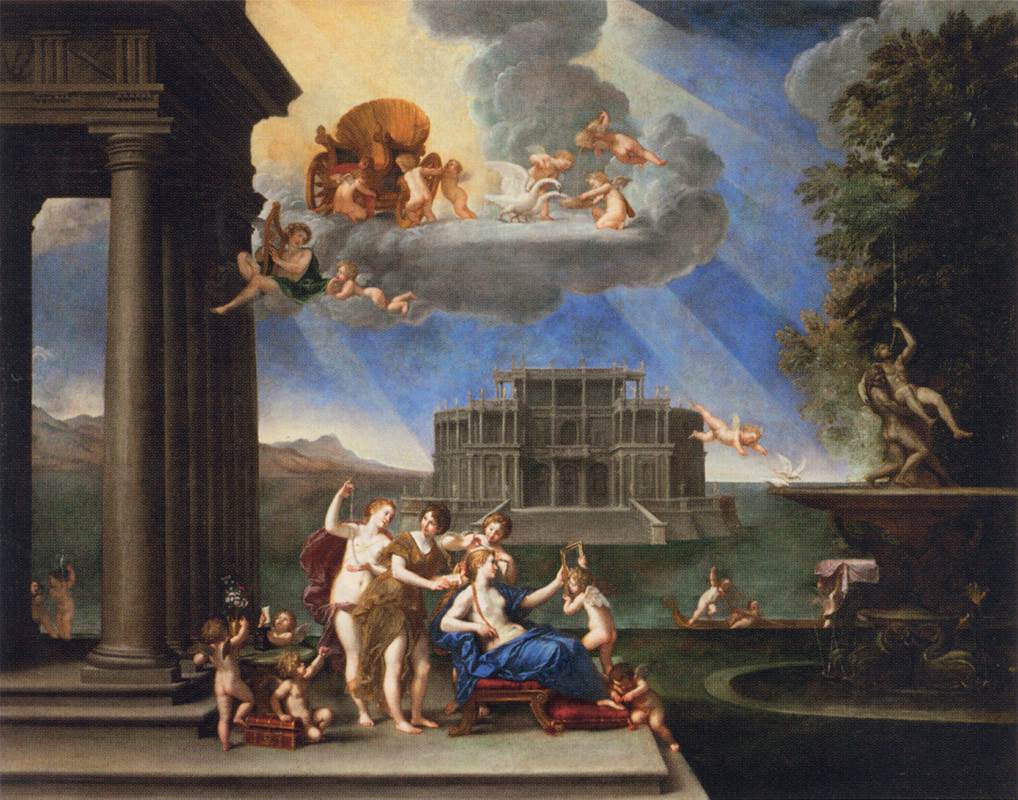Description
The Toilet of Venus painting by Italian artist Francesco Albani is an impressive work that combines graceful composition with exquisite painting technique. Measuring 202 x 252 cm, this masterpiece features the goddess Venus at her boudoir, surrounded by her nymphs and her attributes of love and beauty.
Albani's artistic style is characterized by its refinement and attention to detail. In Toilet of Venus, the artist uses a soft and delicate color palette to create an atmosphere of sensuality and elegance. The figures are rendered with amazing accuracy, and the textures of the fabrics and objects are realistic and detailed.
The composition of the painting is impressive. Albani uses a perspective technique that creates a sense of depth and space in the scene. The arrangement of figures and objects in the painting is carefully arranged to create visual balance and a sense of harmony.
The history of the painting is interesting. It was commissioned by Cardinal Pietro Ottoboni in the 17th century and was part of his private collection. After his death, the painting was sold to the Queen of Spain and later passed into the hands of various collectors before being acquired by the Prado Museum in Madrid.
Although the painting is known for its beauty and elegance, there are lesser-known aspects that make it even more interesting. For example, it has been suggested that the figure of Venus is based on Cardinal Ottoboni's mistress, adding an element of intrigue to the work. Furthermore, some critics have noted that the painting reflects the ideal of feminine beauty of the time, making it an important work for understanding the culture and society of 17th-century Italy.
In short, Francesco Albani's Toilet of Venus is a masterpiece that combines exquisite painting technique with graceful composition and interesting story. This painting is an exceptional example of Italian Baroque art and remains a work of great importance for the history of art.

